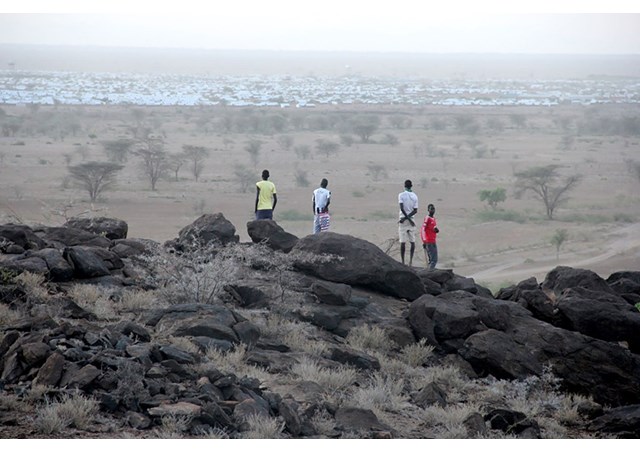
JRS appeals to Kenya leaders not to close refugee camps

(Vatican Radio) The Jesuit Refugee Service together with other humanitarian agencies and the UN are pleading with the Kenya government to reverse its decision to clamp down on refugees citing security concerns.
The government has already disbanded the Department of Refugee Affairs. It says it is the first step in closing the enormous Dadaab and Kakuma refugee camps in Garissa and Turkana counties.
There are currently some 600,000 refugees in Kenya, most of them living in camps. Humanitarian organizations point out the closure of the camps would lead to dire consequences for hundreds of thousands of people.
Angela Wells, the Jesuit Refugee Service Eastern Africa communications officer, told Linda Bordoni that JRS has released a joint statement with other NGOs providing assistance to refugees in Kenya asking the Government to reconsider its plans:
Angela Wells says that JRS has not yet seen an implementation plan for the closure of Dadaab camp or how it could potentially be carried out, but the organization is concerned the consequences could be dire for the 600,000 refugees that are currently seeking refuge in Kenya.
She explains that practically speaking, the fact that the Department for Refugee Affairs has already been disbanded means that all those refugees currently arriving in the nation are not being registered so “at the moment we know that there are nearly 500 refugees waiting at the border of South Sudan and Kenya who have not been able to be registered and thus not been able to transfer into Kenya”.
What’s more, Wells says, in the North, in Kakuma camp, there are presently 2.200 refugees waiting in the reception area which is not built to host large numbers of people so JRS is concerned about health and hygiene conditions there fearing that diseases like cholera could spread.
In addition, she says, “movement passes” are not being given to refugees who are meant to live in camps (and most of them do) so in the event of a medical emergency, the sick or wounded person is not allowed to be evacuated into Nairobi for treatment “and we know that one refugee in Dadaab camp has already died”.
“These are just a few of the immediate consequences, not to mention the long-term consequences if the decision is actually taken up” she says.
Wells explains that Kenya has a 20-year history of welcome for refugees fleeing conflict all over Africa. She says that at – only in Kakuma – there are at least 500 new arrivals every week.
The refugees come from South Sudan, Burundi, Congo, Ethiopia, Eritrea, Uganda and of course Somalia and even as far north as North Sudan.
Many, she says – some 56% of the camp population – are women and children “who would have severe protection concerns if they were to leave the camp”.
Wells says JRS agrees that security needs to be prioritized in Kenya and that terrorism needs to be halted “however we see refugees as a consequence of insecurity”.
“Many have fled terror groups themselves (…) and we also think refugees could be good allies in trying to alleviate security tensions” she says.
“We are very skeptical of equating the term refugee with the term terrorist”.
Wells goes on to talk about the work the Jesuit Refugee Service does in Kenya. That includes providing educational programmes, protection areas for women and girls, safe houses for boys who have undergone abuse, day care centers for children, special needs programmes and mental health programmes.
“We would like to appeal that the government would reverse their decision to both disband the Department of Refugee Affairs as well as to close the camps. We can’t see how the government could humanely deal with 600,000 people” she says.
She reiterates that forced returns cannot and must not be seen as an option for those fleeing conflict or persecution: “that would be a violation of national and international law”.
Wells voices her hope that Kenya will not follow some of the practices recently seen in Europe and says it is important also to take in account that the bordering countries of Kenya – Ethiopia, Uganda – are already hosting hundreds of thousands.
“We would also like to appeal to the international community to continue to support these efforts, whether it is financially or with more services or with more resettlement.
The UN, she says, has said it intends to settle 10% of the world’s refugees but at the moment that number is 1%, “so looking at this from a global perspective this is very critical”.
To find out more about JRS Eastern Africa and the joint appeal click here.
| All the contents on this site are copyrighted ©. |


